Cardiovascular diseases are one of the most common causes of death in Germany. With the right diet, however, the risk of this can be prevented. The following foods can help clear your arteries and reduce your risk of a heart attack.
- Reduce heart attack risk: prevent heart attacks with a healthy diet
- The risk of cardiovascular diseases can be significantly minimized with the right foods
- A balanced meal plan can help clear the arteries
Heart attack, arteriosclerosis, coronary artery disease: cardiovascular diseases are still the most common cause of death in Germany and many other Western countries. Our lifestyle plays a decisive role in this - and not just vices such as smoking, alcohol consumption, or too little exercise, but above all our diet. We tell you which foods clean the arteries and help prevent cardiovascular diseases and thus reduce the risk of heart attacks.
Lowering the risk of heart attack: These foods keep the arteries clear
Fats are deposited in our bodies and gradually clog our blood vessels. The result: the blood can no longer flow properly. The risk of heart disease increases sharply. In addition to high blood pressure, obesity, and high cholesterol, a high-fat diet is a risk factor for clogged blood vessels.
As well as foods that clog your arteries, there are also foods that clean them and thereby help prevent cardiovascular disease. The blood vessels supply our organs with oxygen and nutrients. If they are blocked, it can lead to organ damage, heart attacks, or strokes.
This is exactly why you should try to keep your arteries as healthy as possible - that is, flexible, elastic, and stable. Improper nutrition can build up deposits in the veins, reducing their diameter and even clogging them. We'll show you foods that will clean your arteries.
Grapefruit
The grapefruit is not only the largest of all citrus fruits, it is also good for your cardiovascular system: the tropical fruit is full of pectins. Pectins are sugar-like fibers that can slow down progressive arteriosclerosis. For those who have previously followed a less healthy lifestyle, grapefruit is, therefore, the ideal snack for heart health.
If you don't like grapefruits, you can also use apples or grapefruits. These fruits also contain pectin. In addition to pectin, apples also contain procyanidins, which prevent blood clots. Not all apples have the same amount of procyanidins, so it's best to choose the Granny Smith or Red Delicious varieties.
As an alternative to eating the grapefruit or grapefruit as a fruit, you can of course also drink grapefruit juice. The juice contains the same health-promoting substances as the fruit itself. By the way: The bitter substances contained in grapefruit are not only good for digestion, but they also fight harmful fungi and bacteria in the intestines.
But be careful: grapefruit or grapefruit juice must not be consumed if you are taking certain medications. The furanocoumarins contained in grapefruit act on some drugs - such as cholesterol-lowering agents - and can sometimes cause serious side effects, according to the official health portal of the German pharmacists aponet.de. If you are on any medication, it is important to consult a doctor before consuming grapefruit products.
Green tea
Green tea is also perfect for a healthy cardiovascular system. What makes green tea so healthy for our arteries are the procyanidins it contains. Procyanidins are substances that have two types of biological effectiveness: on the one hand, they can prevent blood clots and thus both heart attacks and strokes; on the other hand, they can stabilize the arteries and ensure more elasticity.
Green tea - protection against amyloidosis: Those who drink green tea more often can - according to the Deutscher Apotheker Zeitung - also protect their heart from damage caused by hereditary or age-related amyloidosis. With the disease, protein particles get stuck in the heart (and other organs) so that it can no longer work properly - in the advanced stages often only a liver transplant helps, as the defective proteins are formed in the liver.
Researchers at Peking Union Medical College found that regular consumption of green tea * can reduce the risk of cardiovascular disease by up to 20 percent and the risk of stroke by as much as 22 percent. These research results were published in the European Journal of Preventive Cardiology in January 2020. Green tea also contains polyphenols, which can lower blood pressure and blood fat levels.
Incidentally, these positive effects are also suspected with black tea. However, black tea * is often drunk with milk, which - according to the researchers - can affect the health benefits. Instead, try your black tea with almond milk or with soy milk made from European soy.
Whole grains, legumes, and nuts
There is a lot of fiber in legumes, whole grain products, but also in brown rice or oat flakes. These are not only good for digestion but can also greatly reduce blood fat levels. Another advantage of high-fiber foods is that they can be combined with almost any meal. Eat some wholemeal spelled bread with your cream soup or, even better, bake the bread yourself: Here we will show you how easy it is.
Among the legumes, the chickpeas are particularly healthy for your cardiovascular system, because chickpeas contain soluble and insoluble raw fibers, which stimulate the excretion of bile acid and thus lower the cholesterol level. Because the body needs cholesterol to produce bile acid. Researchers at Lund University in Sweden also found that chickpeas can lower the risk of cardiovascular disease.
Try, for example, pastries made from chickpea flour or eat crispy falafel with a garlic dip. Nibbling on a handful of nuts also helps your heart health a lot - how about, for example, Aegean pistachios from Greece *?
Spinach
Greetings from Popeye: Although spinach does not contain quite as much iron as long thought (and shown in the popular sailor comic), it is all the better for your heart. Because what should actually make spinach famous is its vitamin D and E content.
These two vitamins prevent the oxidation of cholesterol, so that plaques, which are deposited and thus narrow the arteries, do not even form. According to the Deutsche Apotheker Zeitung, spinach not only cleanses the blood vessels but also strengthens the muscles.
The myth cleared up: for long time spinach was ascribed an exceptionally high iron content, also made famous by the Popeye comic. However, this is a mistake. In 1890 the Swiss Gustav von Bunge examined the leafy vegetables.
His results on the iron content were correct, but the study concerned dried spinach. Fresh spinach, which consists of around 90 percent water, unfortunately only contains 3.5 mg iron per 100 grams instead of an unbelievable 35 mg. But he is always healthy!
By the way, spinach also contains omega-3 fatty acids - unsaturated fatty acids that protect your heart and brain from inflammation. You should consume around 300 mg of omega-3s a day.
Healthy edible oils
In general, a healthy diet that is beneficial for your cardiovascular system tends to be low in fat. However, healthy edible oils are an exception. Healthy edible oils include olive oil and rapeseed oil, as they contain a particularly large amount of unsaturated fatty acids and can reduce the risk of heart attacks. They also contain a lot of antioxidants, which can also prevent the oxidation of cholesterol.
Protect your heart with olive oil: The GHF recommends olive oil to reduce the risk of vascular disease. However, contrary to its reputation, olive oil is not the healthiest oil, according to Prof. Dr. Hans Hanauer, head of the Institute for Nutritional Medicine at the Technical University of Munich. Rapeseed oil has a very similar composition and even has a little more vitamin E and omega-3 fatty acids than olive oil.
Still, olive oil is a very healthy edible oil with many nutrients that are good for your body. Important: Always use olive oil with the label "extra virgin" in order to get a high-quality product. Unhealthy edible oils like sunflower oil or corn oil contain a lot of saturated fat, which can clog the arteries. You should only consume these in very small amounts. It is therefore much easier to use olive oil. Here we tell you which olive oil is the best according to Stiftung Warentest.
Salmon
Salmon is also good for heart health and helps lower your risk of heart attacks. The high content of omega-3 fatty acids prevents plaque formation on the arterial walls. This also reduces the risk of stroke and heart attack, as blood clots cannot form.
However, there is a problem here: environmental protection organizations are warning against the consumption of fish, as the overfishing of our oceans has reached worrying proportions. Contrary to popular belief, farmed fish also contribute to this overfishing of the seas, since the feed for farmed fish is still caught in the sea. Which fish can you still buy without hesitation? Here you get to the fish guide of the marine protection organization Sea Shepherd.
But there are also ecological sources of omega-3 fatty acids: Vegetable and ecologically harmless sources of omega-3 fatty acids are, for example, chia seeds, hemp oil, linseed oil, and linseed, rapeseed oil, walnuts, and walnut oil or red algae.
Swiss chard, garlic, and cabbage
Many types of vegetables are only rarely consumed today, even though they are real miracle cures. Swiss chard is such a vegetable. The leafy vegetables have a very high content of antioxidants and thus reduce the risk of inflammation in the body. In addition, Swiss chard has a lot of vitamin D, which prevents the oxidation of cholesterol and thus prevents atherosclerosis. Be careful with vitamin D supplements: Read everything about vitamin D deficiency, supplements, etc.
Garlic is also an underrated vegetable. It is not only delicious but also very healthy. Garlic stimulates the production of nitrogen in the body and ensures elastic and stretchable blood vessels. And it also prevents cholesterol oxidation and thus prevents clogging of the blood vessels. Helpful: Read here how to get rid of the garlic odor.
Not just a trend: have you heard of black garlic *? Popular in Asian cuisine for a long time, black garlic is also being used more and more often here. It is not a plant in its own right, just normal garlic after fermentation. In terms of taste, the black tuber should no longer have anything in common with white garlic, but rather have its very own taste.
But black garlic is not only delicious, but it is also very healthy for your heart, says Prof. Dr. Sigrun Chrubasik-Hausmann from the University of Freiburg im Breisgau. The blood pressure and cholesterol-lowering effect of black garlic are even stronger than that of conventional garlic and it also has an antibacterial effect and prevents colds.
Cabbage against heart diseases: whether green, red, rose, or cauliflower, every type of cabbage is rich in antioxidants, which neutralize the free radicals in the body and thus prevent inflammation. Especially in winter, when many types of cabbage are ripening, cabbage should often land on your plate.
Tomatoes and fruits
Tomatoes, which by definition are actually fruits and not vegetables, contain a lot of lycopene. Lycopene is an antioxidant substance that prevents the oxidation of cholesterol and thus prevents atherosclerosis. But: Lycopene is only found in relevant quantities in heated tomatoes, not in raw. Reach for tomato soup or sauce instead of raw tomatoes.
But tomatoes aren't the only fruit that is good for your cardiovascular system and arteries. Almost all colorful fruits and berries are rich in flavonoids, which neutralize free radicals and thus prevent inflammation. The German Nutrition Society recommends eating two servings of fruit a day. For example, one serving corresponds to a banana or a handful of berries.
The pomegranate is a particularly healthy fruit. Israeli researchers found that the oriental fruit, which is now also grown in the Mediterranean region, can lower blood pressure by up to 20 percent. At the same time, regular pomegranate consumption can lower the LDL level in the blood. With its antioxidants, it also prevents inflammation and you can reduce your risk of a heart attack without much effort. Is it too time-consuming to peel a pomegranate? No problem: pomegranate juice has the same positive effect on your health. However, the consumer advice center points out that the positive effects ascribed to the pomegranate have not been scientifically proven.
Cayenne pepper
Cayenne pepper also protects the cardiovascular system: The spice, which consists of dried and ground chilies, is rich in the substance capsaicin. Capsaicin prevents plaque deposits in the arteries and thus prevents arteriosclerosis, as an American research group found out. Cayenne pepper also has other health-promoting effects: It stimulates digestion and promotes blood circulation.
By the way: Many people mistakenly believe that cayenne pepper and chili powders are one and the same thing. Although the two red powders look very similar and both are made from the chili plant, they are still different products. The difference is quite simple: Chili powder is famous for its mild spiciness (between 500 and 1000 Scoville), Cayenne pepper *, on the other hand, varies between stronger heats of 2000 to 5000 Scoville up to the hottest variants with up to 60,000 Scoville.
For your heart health, you should season your dishes with slightly spicy sauces that contain cayenne pepper from time to time. Tabasco sauce goes very well with grilled vegetables or sandwiches, for example. In addition to a healthy diet, a healthy cardiovascular system also depends on sufficient exercise. Many of our activities nowadays take place sitting in front of a screen. Try to exercise at least half an hour three times a week to keep your heart healthy. Endurance sports are best suited for this. But even a simple walk can work wonders. Reduce the risk of heart attacks quickly and easily - with exercise and a good diet.
* Note: In the editorial team we are always on the lookout for great offers and useful products for our readers - for things that inspire us and bargains that are too good to be ignored. The links provided in this article and marked with a shopping cart symbol or an asterisk are so-called affiliate links/advertising links. If you click on one of these links and buy from it, we receive a commission from the dealer. This does not change the price for you. Our editorial reporting is fundamentally independent of the existence or the amount of a commission.



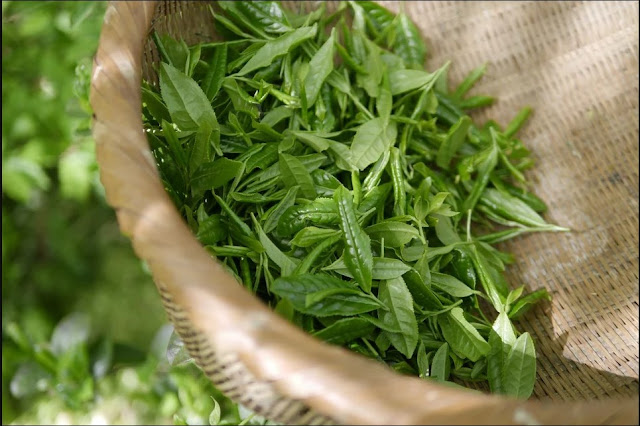
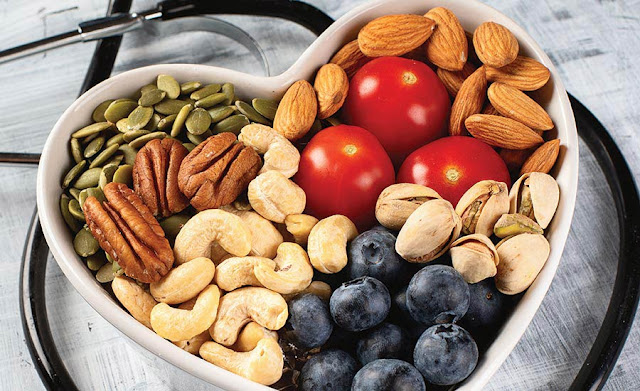

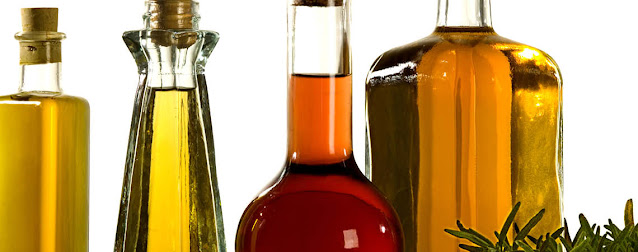

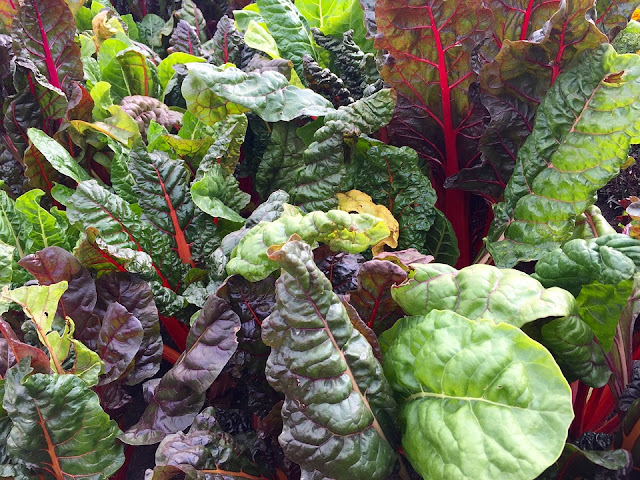
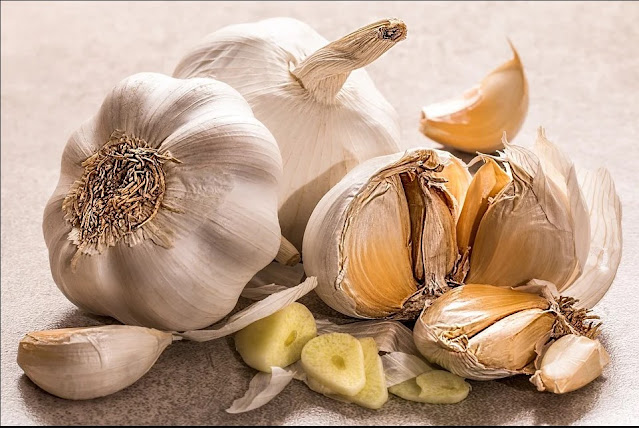
Post a Comment